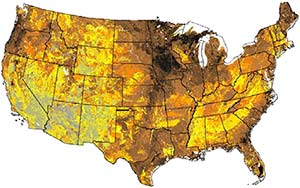American philosopher J. Baird Callicott describes the development of secular environmental ethics and comparative religious environmentalism, two approaches to environmental ethics that continue to define how we think about a sustainable world.Callicott is one of the great scholars of Aldo Leopold’s work, and someone who continues to develop his “land ethic.” Leopold has been an inspiration to me personally, and I’m pleased to share that later this year my wife Steph and I will be participating in one of the Aldo Leopold Foundation‘s Land Ethic Leader training programs. This is something I’ve been looking forward to for a long time, and I’ll have more to say about it once we complete it. In the meantime, you can find out more about the Aldo Leopold Foundation at
www.aldoleopold.org.
Read more:
http://www.patheos.com/blogs/dannyfisher/2014/07/j-baird-callicott-on-judeo-christianity-zen-buddhism-and-environmental-ethics/#ixzz37XDfQ5WE
J. Baird Callicott '63 - "Judeo-Christianity, Zen Buddhism, and Environmental Ethics" - YouTube
https://www.youtube.com/watch?v=u3TSm2bYO2c
Journey of the Universe is an epic documentary exploring the human connection to Earth and the cosmos, from producer/directors Patsy Northcutt and David Kennard. Big science, big history, big story, this one-of-a-kind film was created by a renowned team of scientists, scholars, and award-winning filmmakers, led by co-writers Brian Thomas Swimme, the acclaimed author and evolutionary philosopher, and Yale University historian of religions Mary Evelyn Tucker. They weave a tapestry that draws together scientific discoveries in astronomy, geology, biology, ecology, and biodiversity with humanistic insights concerning the nature of the universe.




